How Fresh Life is scaling urban sanitation in Kenya and Zambia
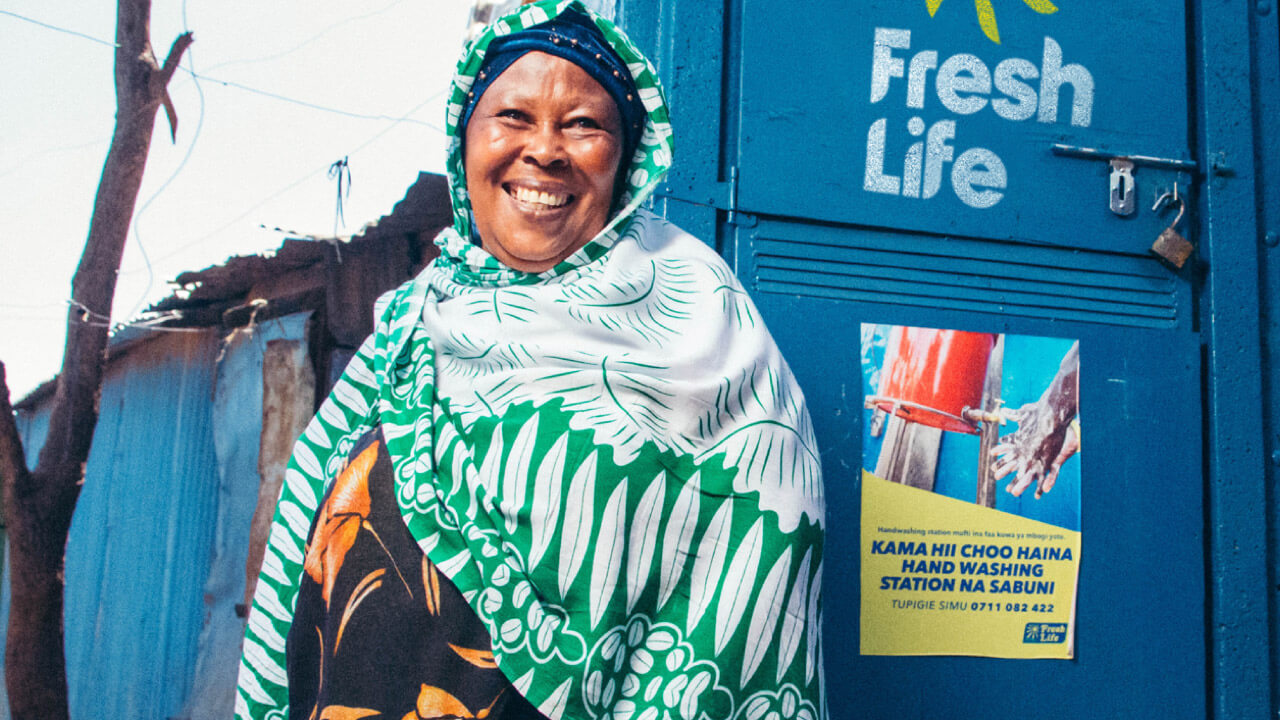
In the crowded informal settlements of Nairobi, Kenya, and Lusaka, Zambia, sanitation is a critical challenge. Fresh Life, a social enterprise, is tackling this problem through a model focused on sanitation access, waste management, scale and long-term sustainability. Anthony Mulinge, Managing Director of Fresh Life, spoke to us about the complexities of urban sanitation.

“The key issue,” he said, “is making sure that you’re bringing in systemic solutions that can serve entire communities rather than individual people or households.” He highlights the need for broad, integrated strategies in dense urban areas, where conventional solutions such as pit latrines and sewer systems are often impractical due to space and cost constraints.
The urban sanitation dilemma
Urban areas pose unique challenges for sanitation. Fresh Life’s model is designed to address these challenges directly, providing a scalable alternative through container-based toilets that require neither water nor electricity. By securely containing waste, these units help prevent contamination of local water sources—a critical concern in areas with high water tables.
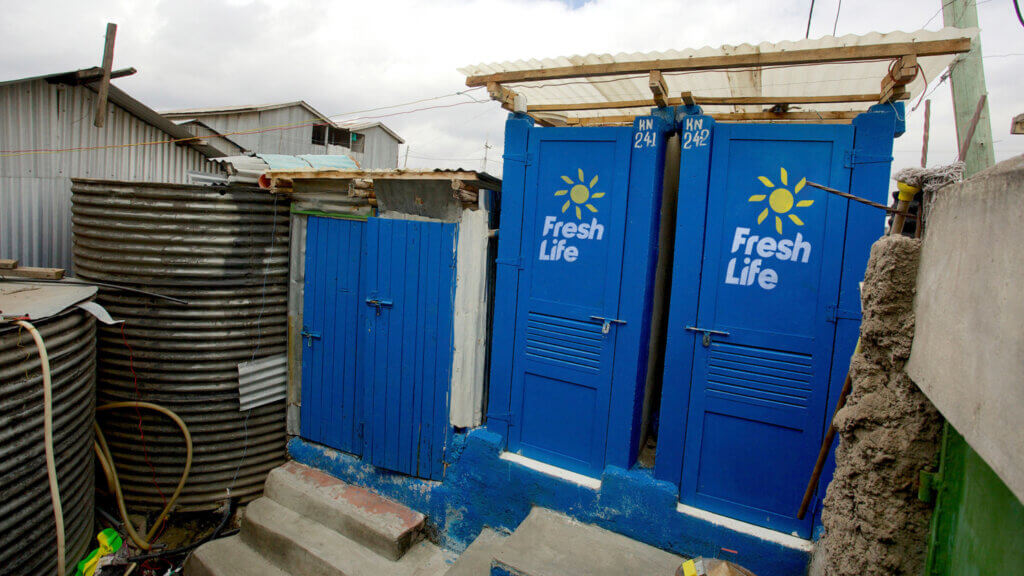
Maximising scale
Rather than expanding geographically, Fresh Life focuses on increasing service density to magnify the impact of improved sanitation in targeted regions.
“As sanitation coverage grows, the health benefit increases.”
Scaling also lowers costs. “As we reach more people, the per-person cost decreases, which is essential for making the service affordable and sustainable long term,” he adds.
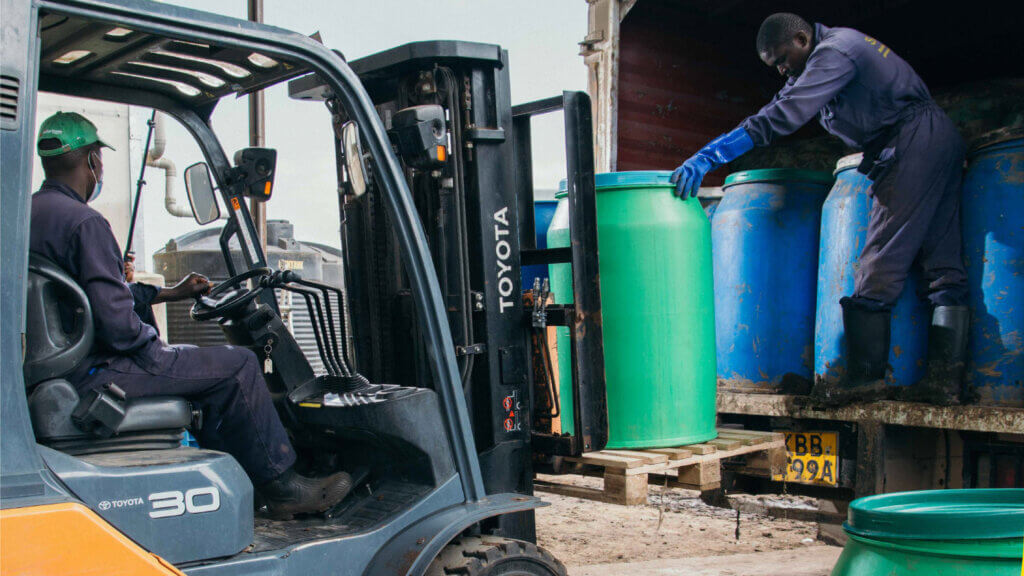
Employment and economic empowerment
Fresh Life’s impact extends beyond sanitation. The enterprise has created over 350 direct jobs and more than 6,000 indirect jobs in the communities it serves, all through local entrepreneurs—known as Fresh Life Operators—who manage the toilets and earn a stable income.
“We employ over 350 people, with around 120 in logistics, collecting waste daily,” Anthony explains. These roles, alongside opportunities for local entrepreneurs, are key to economic empowerment in low-income areas.
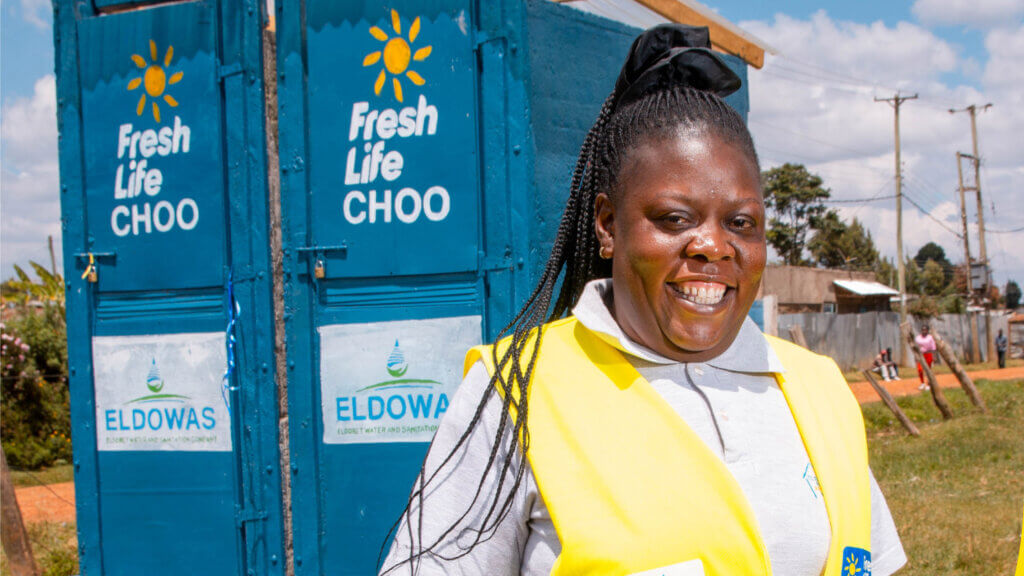
Environmental benefits
Fresh Life also contributes to environmental sustainability. Their container-based toilets are resilient to climate-related disruptions like droughts and floods, preventing contamination in areas with high water tables.
The shallow containers used in the toilets reduce methane emissions by limiting anaerobic decomposition of waste, and the frequent safe management of waste reduces environmental pollution. The collected waste is then repurposed into fertiliser, animal feed and biomass briquettes, supporting local agriculture and renewable energy. This circular economy approach is a critical element in Fresh Life’s model.
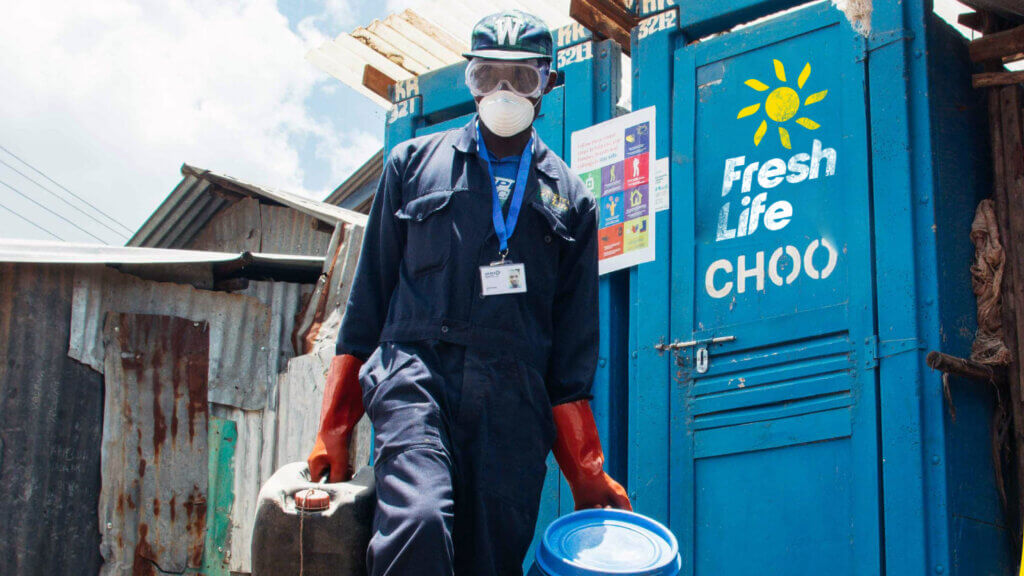
A model for the future
The partnership between the Judith Neilson Foundation and Fresh Life highlights the potential for innovative, scalable solutions to address urban sanitation. As Fresh Life continues to expand its reach in Kenya and Zambia, this collaboration will be instrumental in ensuring that more communities gain access to safe, sustainable sanitation. “The goal is to reach 100% of people in a given area with safe sanitation,” says Anthony.
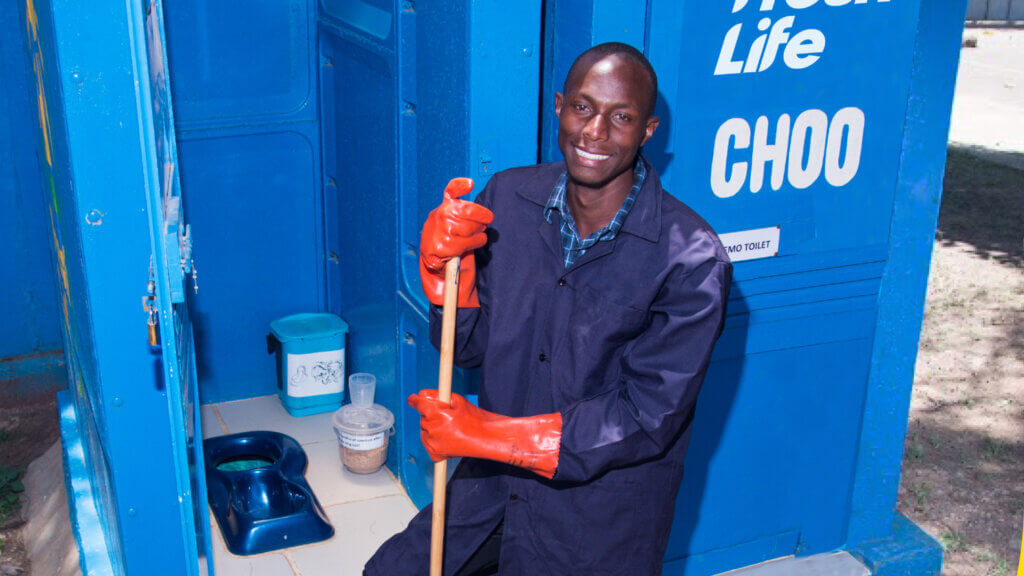
Learn more about how Fresh Life is working with municipalities and residents to develop citywide sanitation solutions in rapidly growing urban areas: https://fresh-life.org/